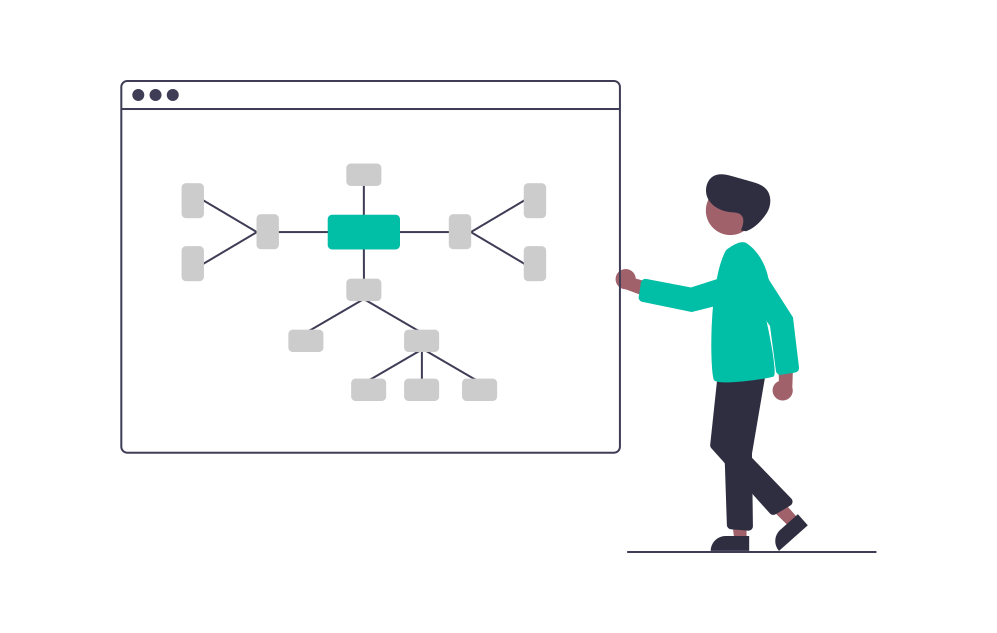How to Develop a Growth Mindset

What is a growth mindset?
A growth mindset is a way of looking at yourself that embraces learning and development. It is a way of embracing trying and failing as learning opportunities, and avoiding ‘safe’ unchallenging environments.
It’s easiest to understand what a growth mindset is if you consider it against its opposite: a fixed mindset, as defined by psychologist Dr Carol Dweck in her seminal work on children’s education
Fixed mindset: believes basic abilities such as intelligence and talent are fixed, innate traits. Someone with a fixed mindset does not believe these abilities can be significantly expanded, and because of this they value looking smart and accomplished to others over the pursuit of self improvement. They avoid challenges due to the possibility of failure, give up easily when faced with obstacles, often see effort as pointless, and tend to ignore any negative feedback. A key trait of people with a fixed mindset is that they see the success of others as a threat. Overall, they are hungry for approval and social esteem.
Growth mindset: believes basic abilities can be improved with work, study and effort. They do not necessarily believe everyone is born with equal traits, but they believe everyone can improve upon the innate gifts they have. It leads to a desire to learn and the ability to embrace challenges and obstacles. Someone with a growth mindset sees effort and application as the path to mastery, learns from criticism, and finds lessons and inspiration in the success of others. A more colloquial term for someone with a growth mindset would be grit – someone with grit is determined and persevering and unthreatened by others. Overall, they are hungry for learning and self-improvement.
Why is a growth mindset important?
Having a growth mindset is massively important, life-changing even. Carol Dweck argues that those with a growth mindset are far more likely to have less stressful, more fulfilling lives.
For your personal life, there are all kinds of reasons why a growth mindset is important. For this article, we’ll be concentrating on the professional life. The key reasons a growth mindset can lead to a happier and more successful professional life are as follows:
- The pursuit of self-improvement. The fundamental belief that your innate abilities are not fixed naturally leads to the understanding that these abilities can be improved. This leads a person to throw themselves more willingly into learning environments, training courses, books and seminars. It may not all help, and a person will find that they can’t master everything they try, but the act of trying to learn will help professional performance enormously.
- The ability to embrace challenges and learn from failure. Someone with a growth mindset is far more likely to take on challenges. A fixed mindset can lead someone to avoid challenges, in order to avoid potential failure and having the limitations of their ‘fixed’ abilities exposed. A growth mindset leads someone to understand that failure is not an indictment of your innate abilities, but an opportunity to learn and expand those abilities. If a person with a fixed mindset fails, they will believe they have found the edge of their abilities and not push any further in that direction. If a person with a growth mindset fails, they will believe that with by learning and working hard, they may succeed next time. This has obvious, broad applications to the world of work but what it comes down to is this: someone with a growth mindset will get back on the horse after falling. Someone with a fixed mindset would give up horse riding.
- The ability to learn from criticism. A fixed mindset will lead someone to seek out praise, as a validation of their innate abilities, and shun, ignore or resist criticism. That is because any criticism will be perceived as a boundary on their permanent ability, which is psychologically hard to accept. On the other hand, a growth mindset will lead someone to accept praise, but also accept criticism or negative feedback as an opportunity to improve. Therefore, a person with a growth mindset will be a better employee.
- The ability to be inspired by others’ success. Someone with a fixed mindset is likely to feel intimidated or threatened by others’ success. This is for the simple reason that if you believe everybody’s abilities are fixed, and someone outperforms you, it follows that that person has greater abilities than you. Again, a very psychologically uncomfortable thing for someone with a fixed mindset to deal with – therefore they’re more likely to believe that this successful person must have been given unfair advantages or shortcuts. This has the potential to make them a poor employee (if their peers are promoted above them, they may react in a negative or toxic manner) and a poor employer (if someone beneath them outperforms them in a task, they’re likely to feel threatened by this). On the other hand, someone with a growth mindset is far more likely to see others’ success as an opportunity to learn and gain inspiration, no matter that person’s comparative hierarchical status.
All of this is highly related to the ‘growth’ approach to marketing and product development. The growth approach is one of open-minded experimentation, learning and continuous improvement. It requires the team to let go of ego and treat failures as test-and-learn opportunities. Therefore it is extremely valuable to encourage and nurture a growth mindset in a growth team.
How do I develop a growth mindset?
People can, of course, hold both fixed and growth mindsets at different times and about different things. Most of us have a fairly fixed mindset about our personal abilities to jump off a tower and fly – no amount of positive thinking is going to soften that landing. What matters is which of these mindsets you feed – which you actively encourage in your day-to-day personal and work life.
There are several ways that you can nurture your own growth mindset, every day:
- Be mindful of your own thought patterns. Mindfulness is a hugely beneficial practice in all areas of life and so it is with this. Notice your own thoughts – try to be conscious of whether you are adopting a fixed or growth mindset.
- Stop seeking the approval of others. When you go out to learn something, do it because you want to be better at it, not because you want others to be impressed.
- Be honest with yourself, and with others. Acknowledge when you have messed up or fallen short, and train yourself to be comfortable admitting it publicly.
- Face challenges without fear of failure. Actively tell yourself that failure is an opportunity to learn.
- Encourage others to face challenges, and do not judge them for failure. If you know that you don’t judge others for failure, it’s easier for you to believe that they won’t judge you.
- Find inspiration on those who have improved themselves. Not necessarily those who are incredibly talented, or who have achieved huge financial success. Those who have made themselves better.
- Don’t expect instant success. Learning and improvement takes time – if you’re not immediately good at a new thing, don’t write it off as a failure.
- Actively seek out feedback. Ask colleagues and peers for feedback, but don’t do it hoping for or expecting praise. Do it hoping for a chance to learn.
A growth mindset isn’t something that happens overnight, but we hope you find success using some of the tips we’ve shared above. If you’re looking to take a growth mindset a step a further and build out a growth team, check out some of our other blog posts.
Talk to a Growth Advisor
We create a clear, focused marketing strategy by combining our expertise with your knowledge of your business.
Related Posts

How to Build Long-Term Sustainable Growth
Learn the essential strategies and practical steps to achieve long-term sustainable growth for your business.

What Is Organic Business Growth?
Organic business growth is a term that is thrown around a lot in the business world. But what exactly...

Fixed Mindset vs Growth Mindset
Discover the fundamental disparities between a fixed mindset and a growth mindset in this insightful article.
